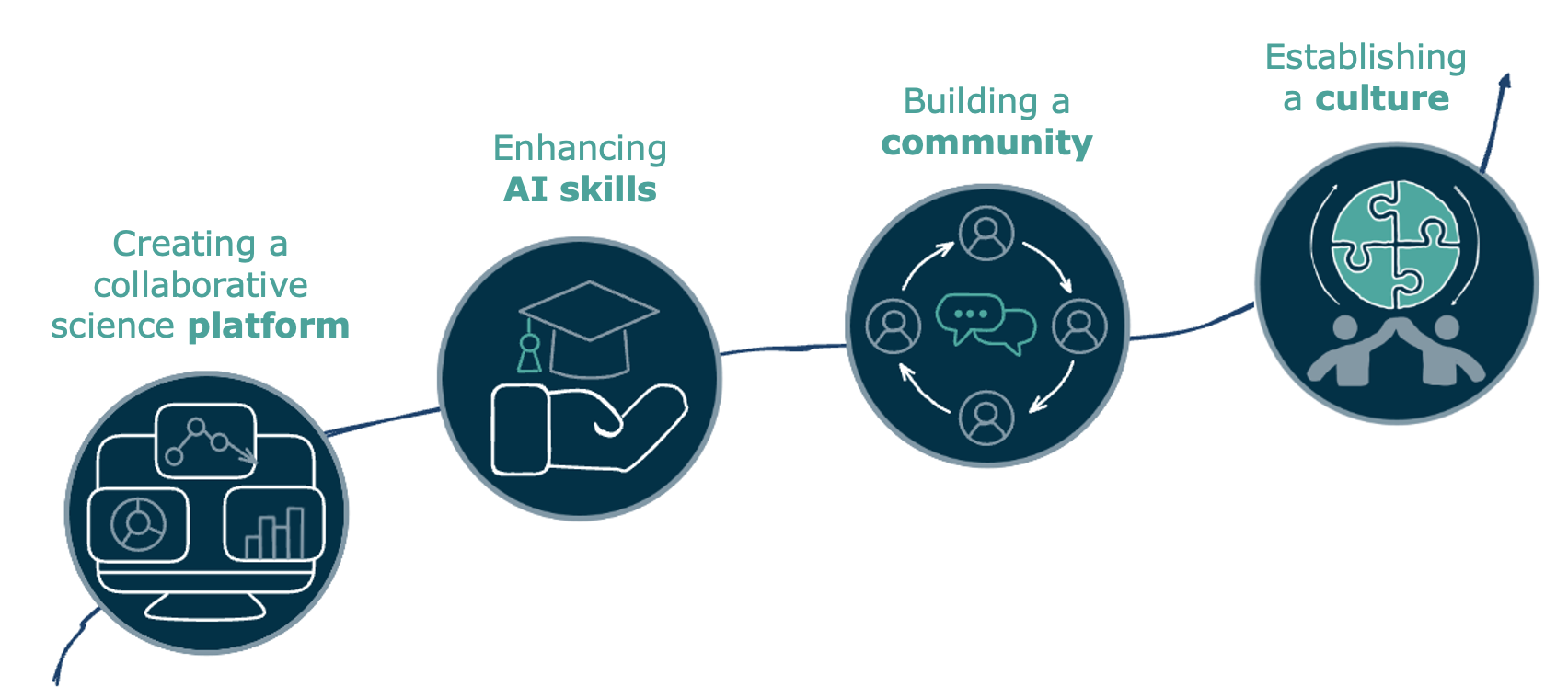Our strategy - Data Science
- Removed a total of (1) style text-align:center;


Creating a Collaborative Science Platform – ESA Datalabs:
The goal of ESA Datalabs is to meet a key community need: accessing space science mission data through an interface that allows scientific analysis without downloading data. The main goal is to boost data usage. As data volumes grow, we also aim to provide a science platform with required resources, standardized tools and shared data access. This supports collaborative research and education in space sciences. For missions with large data volumes, our platform is crucial for maximizing scientific output. It acts as a central hub for researchers to collaborate and share insights. We support early-stage initiatives and ensure research findings are reproducible. In summary, our strategy focuses on providing seamless data access, standardized tools for collaboration, support for early-stage projects, ensuring reproducibility, and maximizing data-intensive mission output while promoting continuous learning through workshops.
Enhancing AI Skills
Our strategy focuses on educating and upskilling on AI, as well as aggregating knowledge, through several key initiatives.
First, the platform provides tools and methods to support education and skill development in AI and data analysis. These resources ensure that all users have access to techniques and guides useful for their work.
Second, we facilitate workshops through the platform. These workshops serve as collaborative forums, bringing together scientists, educators, and students to exchange knowledge, develop new skills, and explore the platform's full potential. By fostering an environment of shared learning, we can collectively advance our understanding and application of AI.
Building a community
Building a vibrant community within ESA Datalabs revolves around fostering interaction and collaboration. One key initiative is the Space Science ML Community, which convenes monthly meetings. These gatherings serve as pivotal moments for sharing insights, discussing advancements, and forging connections among members passionate about machine learning in space science.
Additionally, a dedicated NLP (Natural Language Processing) working group meets weekly. This group brings together teams from various disciplines to collaborate on NLP projects. Through regular meetings, members pool their expertise, tackle challenges collectively, and drive forward innovative solutions that transcend traditional team boundaries.
Together, these initiatives cultivate a dynamic environment where knowledge is shared, ideas flourish, and interdisciplinary collaborations thrive, ultimately advancing ESA Datalabs' mission to harness data science for groundbreaking discoveries in space exploration.
Establishing a culture
As we finalize our strategy, the crucial last step involves establishing a robust organizational culture. This culture will be characterized by data-driven decision-making, recognition of individual technical expertise, horizontal management structures, and a commitment to innovation. By fostering a culture that values and rewards both technical capability and risk-taking, we aim to cultivate strengths that enhance our capacity to generate value for stakeholders within member states and scientific communities alike.
Additionally, it is essential to identify and promote values that are foundational to successful data-driven organizations. These values include transparency, collaboration, agility, and a relentless pursuit of excellence. By embedding these principles into our organizational DNA, we can foster an environment where innovation thrives, and where every team member is empowered to contribute effectively towards advancing our mission in space science and exploration.
- Removed a total of (1) style margin:0;








































 Sign in
Sign in
 Science & Technology
Science & Technology